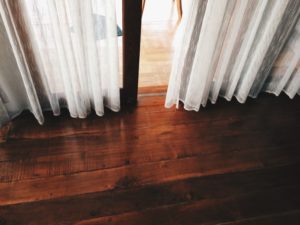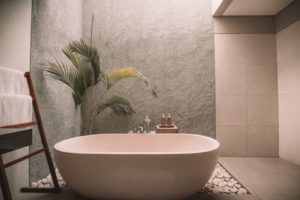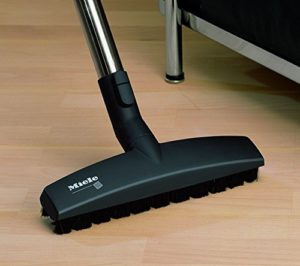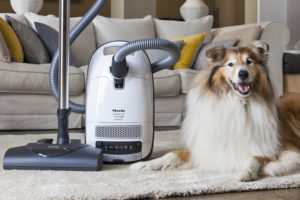
If you’re trying to decide between solid hardwood and engineered wood for your home, condominium, or town-house, you’re not alone. While homeowners historically chose hardwood floors when seeking bare flooring options, engineered wood has grown by leaps and bounds in the last decades as a substitute for solid wood flooring. In fact, today, the majority of newly installed wooden floors in the US and Canada are made from engineered, and not solid hardwood. However, what’s popular isn’t always what’s best; this was true when hardwood was more popular and it remains true in a market where engineered woods have the greater share. Today we’re going to compare both woods to help you choose the right one for your living space.
What’s the difference between solid hardwood flooring and engineered wood flooring?

The difference comes down to composition. Hardwood floors are made completely from hardwood; if you cut them open, you’ll see exactly the same kind of wood throughout the interior. Engineered wood, in contrast, is a layered composite. The top layer is hardwood, but the base, which makes up the majority of a plank, is made from high-end plywood. A hardwood will typically be 3.25 inches wide but planks can vary from 5 inches to 11 inches with a 3/4 inch thickness. Engineered wood comes in the same widths as hardwood but thickness is less and typically runs between 3/8 inches to 1/2 inches.
Which wood species are used in hardwood and engineered wood floorings?

While you can technically make thousands of different species of tree into wood flooring, you’ll get many more choices with hardwood than you will with engineered wood, as the specifications for building the hardwood veneer on engineered wood are much tighter than those needed to make the much thicker blocks of solid hardwood. The most popular options for solid wood are maple, red oak, white oak, pine, and hickory; the most popular choices for engineered floors are red oak, Brazilian cherry, and hickory.
How easy are hardwood floors to install vs engineered floors, and do they arrive pre-finished or unfinished?

You have more options for installation with engineered floors, which can be stapled, clicked, glued, or nailed down, than you do with solid hardwood floors, which are universally stapled or nailed down. You can’t install hardwood as a floating floor (where it’s not secured to your subfloor). As a result, it’s easier to install engineered wood floors than solid ones.
When it comes to finishing, the vast majority of engineered wooden floors will arrive pre-finished. There are a few dealers here and there who will sell you unfinished, or “site-engineered” floors, but they are increasingly few and far between. Hardwoods are following the same trend; more than 75 percent of solid wooden floors currently sold are prefinished.
Which are more durable: solid hardwood or engineered wood floors?

The prize for durability goes to hardwood. When maintained well, it can potentially last for hundreds of years. The main vulnerability is moisture, as hardwood is organic. While you can salvage wooden floors once they’ve been flooded or waterlogged, they’ll never be the same afterward.
Engineered woods are durable, but not nearly as durable as hardwood floors. The thin surface means the desired wood in engineered wood can easily scratch, chip, or be worn away completely with enough damage. It does have the advantage over hardwood flooring of being more resistant to water, if only slightly.
Which wooden floor is a better choice for moisture-rich (wet) environments: hardwood or engineered?

That said, if you want a waterproof or highly water-resistant floor for basements, bathrooms, or kitchens, you’ll want to stay away from both, as neither makes a good choice for moisture-prone environments. That said, if you have to choose between the two, engineered wood is more water-resistant than solid hardwood.
If you’re going to use hardwood somewhere where it might be exposed to moisture, choose site-finished wood, as the top layer has a seal that can keep some (not all) moisture from getting through to the wood. The plywood in engineered wood, however, will work better though, as it’s dimensionally stable, which is a fancy way of saying the wood is far less likely to warp and flex when damp than solid wood.
Will I get a higher resale value from engineered wood or solid hardwood?

If you’re looking at your flooring as an investment, the good news is that you can get a high resale value whether you use solid hardwood or engineered wood. The bad news is that since you’re going to pay more for hardwood to begin with than you will for engineered wood on average, you won’t get quite as much of your money back. The reason engineered wood floors often match hardwoods in resale value is because both are composed of real wood, even though the compositions of those woods are substantially different as discussed above.
Which vacuum cleaners are most effective with solid and engineered woods?

While you can use nearly any vacuum to clean both solid and engineered wooden floors, we tend to recommend vacuums with a.) Parquet heads and b.) powered brush heads for two reasons: the first is because Parquet heads are much more efficient than powered heads when it comes to actually cleaning dirt from wooden floors instead of pushing them around due to air currents.

The second reason is because powered brush heads are going to be necessary if you have any carpeting or area rugs in your home, which most people with wooden floors do due to the practicalities of life. High-end canister vacuums like the Miele Complete C3 Cat & Dog (reviewed here and here) and Miele Compact C2 Electro+ (reviewed here and here) include both heads for efficient cleaning of bare floors and all piles and styles of carpeting, making them excellent choices for individuals and families alike.
![]() You can buy the Miele Complete C3 Cat & Dog here on Amazon or buy the Miele Compact C2 Electro+ here.
You can buy the Miele Complete C3 Cat & Dog here on Amazon or buy the Miele Compact C2 Electro+ here.
![]() Canadians can buy the Miele C3 Cat & Dog here or buy the Compact Electro+ here.
Canadians can buy the Miele C3 Cat & Dog here or buy the Compact Electro+ here.
 If you find our research on PMC helpful, you can follow our efforts to keep maniacally reviewing home cleaning tools by shopping through our links above. We promise to keep fighting the good fight against every horror children, animals, and grown, yet messy humans can inflict upon a clean home.
If you find our research on PMC helpful, you can follow our efforts to keep maniacally reviewing home cleaning tools by shopping through our links above. We promise to keep fighting the good fight against every horror children, animals, and grown, yet messy humans can inflict upon a clean home.

